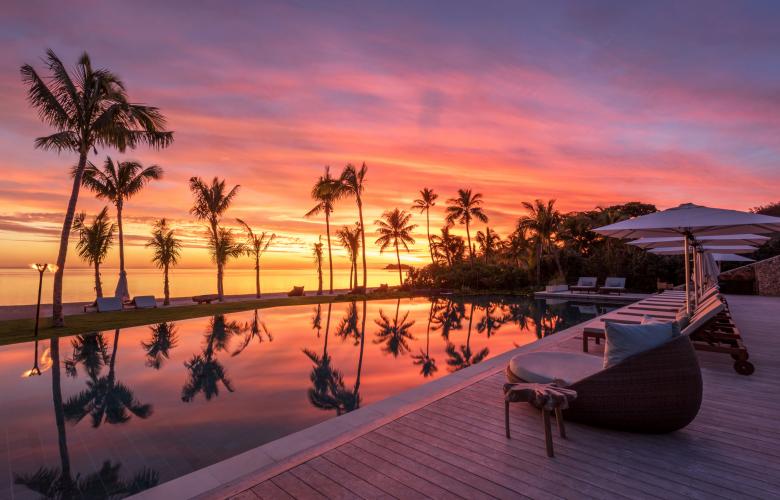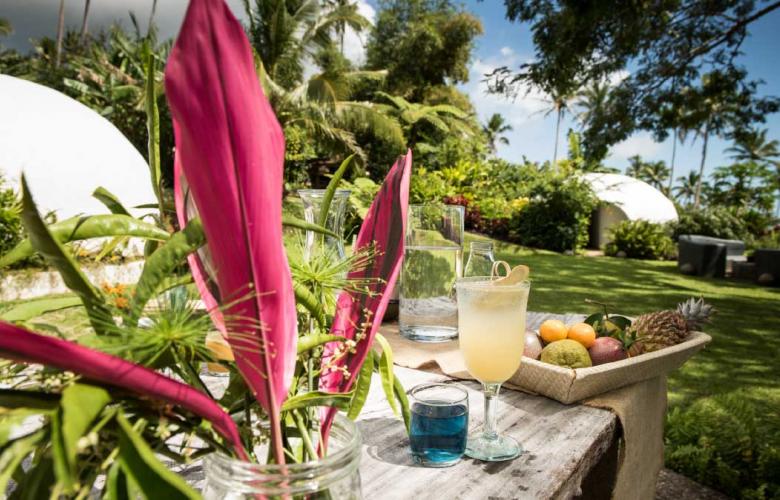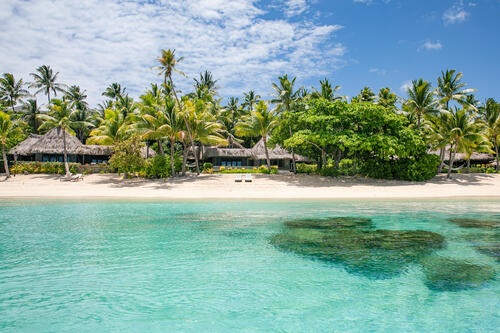FIJI Tourism Celebrating Inclusive Growth this World Tourism Day 27 September
Contact
FIJI Tourism Celebrating Inclusive Growth this World Tourism Day 27 September
Each year Tourism Fiji celebrate World Tourism Day as a recognition of the importance and impact that tourism has on societies globally. On Monday 27 September Fiji Tourism which accounts for almost 40% of Fiji’s national GDP celebrates World Tourism Day with a little more gusto than previously, recognising Inclusive Growth within the industry.
Now more than ever, the appreciation for travel and tourism is at an all-time high and the Fijian tourism industry (which accounts for almost 40% of Fiji’s national GDP) has several reasons to get travellers excited, to not only get back to its shores, but to get travellers back knowing they will be supporting a wave of inclusive growth tourism.
From farm-to-table initiatives, solar-powered tourist attractions to supporting local businesses, Fiji is blessed with an abundance of lush landscape and produce for the industry to capitalise on naturally and sustainably.
We’ve rounded up some key examples of inclusive growth tourism within Fiji.
1. SIX SENSES
Open for just two years before the pandemic hit, the resort located on Malolo Island has implemented many initiatives with a large focus on wellness and community inclusion. Fiji’s only fully solar-powered resort, rather than importing produce has a farm-to-table concept, with an on-site organic farm, a herb, vegetable & fruit garden and employs local fishermen to serve up a ‘catch of the day’ on their main restaurant menu. The resort has its own reverse osmosis plant and water refinery allowing them to collect rainwater and produce high-quality drinking water for its guests, served in glass bottles to eliminate the use of plastic. They also use their onsite brewer to make all tonics, bitters and kombucha, ensuring no synthetic varieties are served within the accommodation. Additionally, the stunning resort is home to 39 Fijian crested iguanas, specialist insights show the critically endangered species is successfully reproducing within their protected habitat on the resort.
2. TOKORIKI ISLAND RESORT
The luxury island resort, having just won ‘Most Outstanding Luxury Hotel 2021 – Fiji’ exclusively stocks Nama Fiji in its boutique and spas, a luxury skincare range made with essential minerals and vitamins. Nama Fiji is made from caulerpa racemosa, a unique species of seaweed that grows wild in the blue lagoon waters of the idyllic Yasawa Islands. Not only does Tokoriki Island Resort encourage and support inclusive growth by exclusively stocking the Fijian home range, but Nama Fiji likewise strives to operate on a sustainable level. By farming and cultivating sea grapes growing on the shallow seabed, it in turn, creates employment opportunities for the women of the Yasawa Islands.
3. SIGATIOKA RIVER SAFARIS
Fiji’s leading river safari is a must do for all international or local visitors looking to get a glimpse inside the lives of Fijians by visiting some of the 15 villages the safari business works with. By booking with Sigatoka River Safari, travellers can be rest assured they’ve had a positive and inclusive impact on the individuals and families of the local villages they visit. A portion of the ticket price goes directly back to the local villages to help them with various developments including water projects, electrification, telecommunications, installing concrete footpaths, education and health initiatives.
4. ECOTRAX FIJI
Mandy and Howie De Vries moved to Fiji in 2017 to set up EcoTrax, rail-mounted tandem bikes, called velocipedes that gets people visiting inland Fiji along previously used sugar cane railway tracks. The hot tourist attraction has a zero-carbon footprint, ensuring that the bikes are 100% powered by solar, in turn reducing their footprint and creating small-scale businesses in the villages along its tour path. Not only this but when the tour reaches its destination on a pristine, white sandy beach, there is a picnic waiting for them, this picnic is made up of fresh produce gathered from the local village farms along the way.
5. THE WESTIN DENARAU ISLAND
Denarau Island’s only farm is at the heart of The Westin Resort. The four-hectare organic farm offers up fresh fruits, vegetables, and herbs for the consumption of all guests and creates agricultural career opportunities for the locals. Guests are encouraged to get involved, in several hands-on activities to learn more about organic farming and the benefits this has on local consumption, carbon footprints and the economy.
6. GAIATREE SANCTUARY
The stunning island destination of Taveuni is home to one of the world’s most untouched island habitats, Gaiatree Sanctuary. The Organic spice plantation provides guests with a unique experience serving up tours of the superfood farms. The Sanctuary which is home to a significant number of different variety trees, plants and herbs is set on a pristine island surrounded by free-range chicken, flowing waterfalls and several beehives. Their ‘Spice of Life’ tour provides guests with the full experience on the farm, followed by a lunch simply made farm-to-table with superfoods, edible flowers, tropical fruits, and spices, all of which have their own benefits, that you’ll learn all about. In addition, Gaiatree employs local Fijians, and empowers them to learn new ways of growing and cooking.
7. KOKOMO PRIVATE ISLAND RESORT
Kokomo is another Fiji Resort that encompasses the farm-to-table concept. The Yaukuve Levu Island based resort features a 2.2-hectare organic herb, vegetable, sprout and flower farm. The Hydroponics Garden is large enough to produce fresh ingredients for guests all year without the need for soil to grow the produce. Their vanilla plantation allows the production of year-round vanilla beans for the pastry kitchen to whip up sweet delicacies for its guests. Beyond the farm, the resort boasts 16 beehives that produce rich scrumptious honey, 170 free-range chickens providing fresh eggs daily, all of which features on the Island Resort’s fresh and flavoursome menus.









